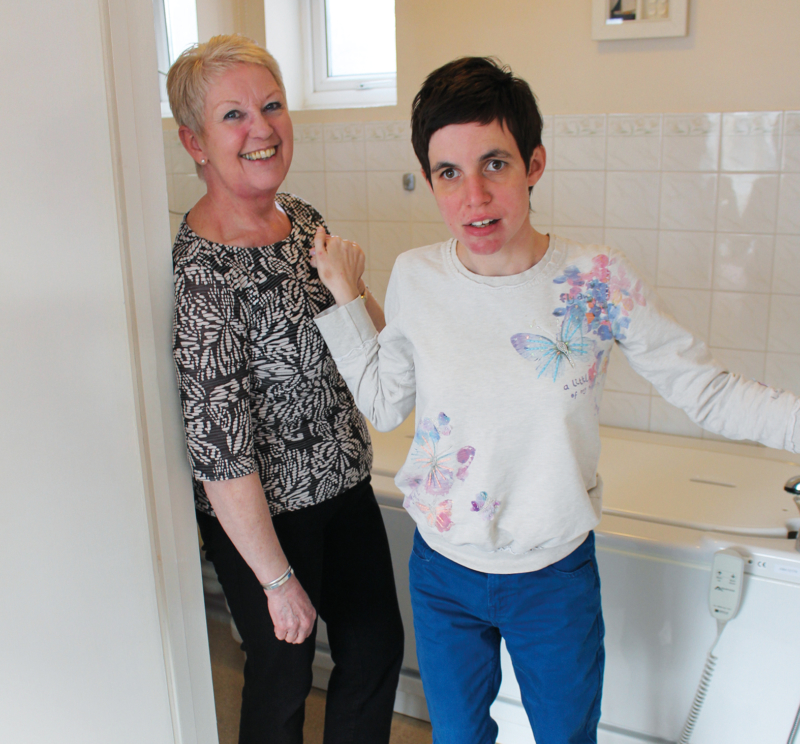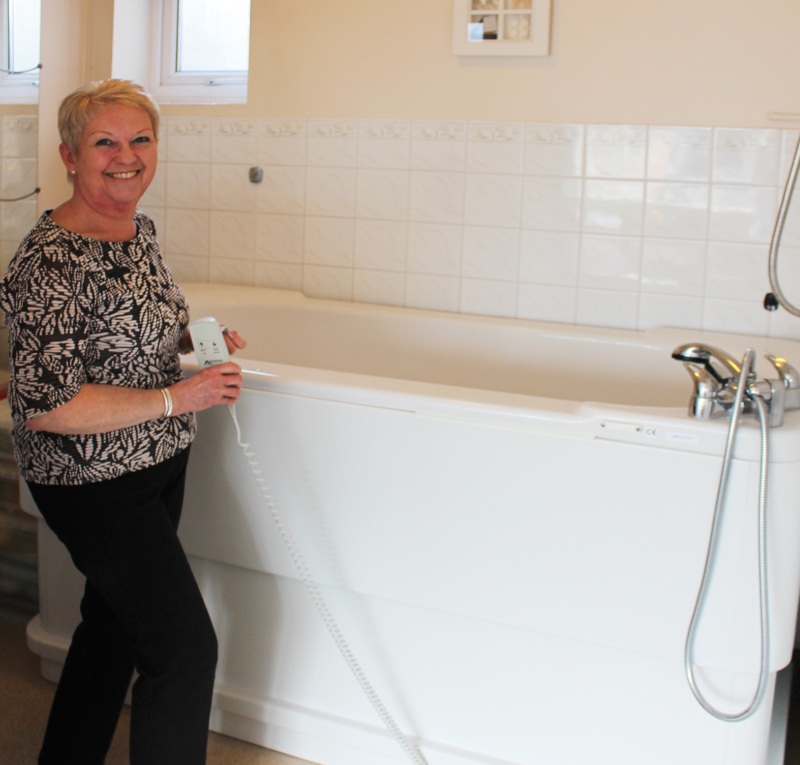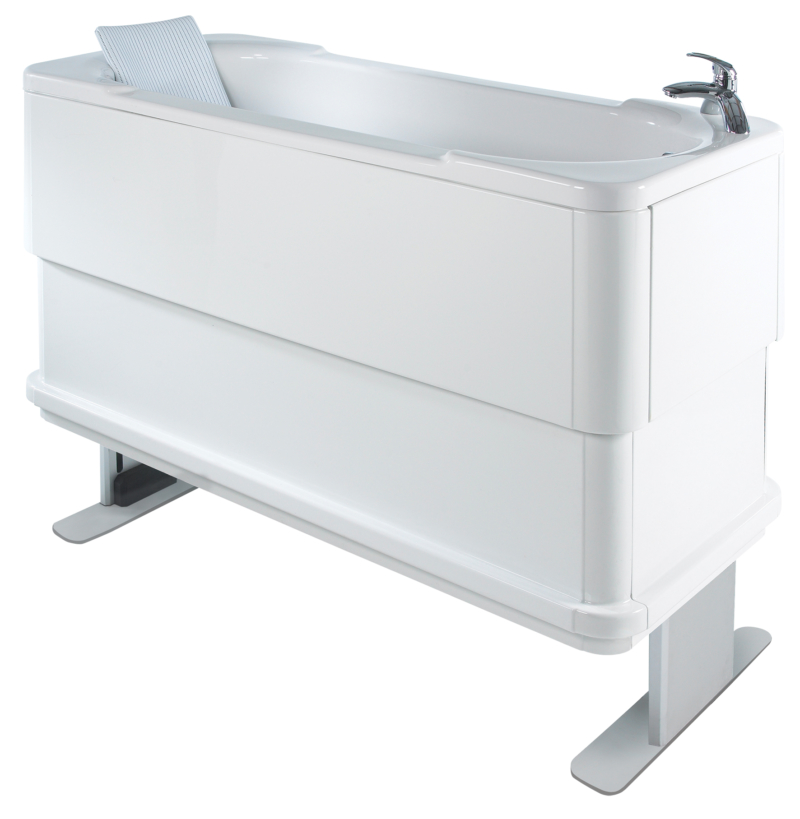Neurological conditions and bathing
April hosts both MS Awareness Week and World Parkinson’s Day. This provides an opportunity to raise awareness and highlight the realities of living with a neurological condition.
According to the latest estimates, the total number of neurological cases in England has now reached 16.5 million (neuro numbers 2019). Neurological conditions bring with them numerous symptoms which impact significantly on a person’s ability to manage their daily living skills, engage in leisure activities and work, as well as affecting their mental health, psychological wellbeing and relationships. People with neurological conditions have been shown to have the lowest health-related quality of life of all long-term conditions (NHS England) and a 2016 survey reported only 19 percent of this group felt that their mental health was well supported.

Occupational therapy is a client-centred health profession concerned with promoting health and wellbeing through meaningful occupation. The primary goal of occupational therapy is to enable people with illness, injury or disability to participate in the activities of everyday life. Occupational therapists achieve this outcome by working with people and communities to enhance their ability to engage in the occupations they want to, need to, or are expected to do, or by modifying the occupation or the environment to better support their occupational engagement. (WFOT 2012)
National Institute for Health and Care Excellence (NICE) and occupational therapy specific guidelines for neurological conditions (in general guidelines and in condition specific guidelines) all state that occupational therapy assessments should include assessment of personal care and, though not always mentioned specifically this would include the assessment of bathing needs.
The complexity of neurological conditions can make bathing a challenge in not only providing the right physical solution but in making sure that the assessment incorporates all aspects of wellbeing and addresses the question of why people bathe and not just how they can safely access the bath.

When it comes to bathing, assessment is often lacking the holistic and client centeredness that stands occupational therapists apart from other health professionals. Geographical location and local resources have determined how we assess and what we offer to our clients which leads to little patient choice and limited options. More often than not, especially with more complex physical needs, a walk-in shower is deemed the most appropriate and cost-effective solution and is an ‘easy fix’ in terms of paperwork and funding.
It is worth considering though that provision of a bath, rather than a shower, has numerous physical benefits as well as having a positive impact on mental health and psychological wellbeing. For the general population, the benefits of bathing are well known: Warming the body, relaxation, reduction of muscle/joint pain for example (PMA online). In people with neurological conditions, the benefits of bathing can be substantial and would make a strong argument when it comes to assessment and provision of bathing solutions once standard facilities no longer meet a person’s needs.
It is difficult to be specific about the physical needs of people with neurological conditions as a whole. Each person is different, and their needs vary massively depending on numerous factors. However, there are symptoms common to many neurological conditions which can be eased and improved by immersion in water, including (but not limited to):
- Pain
- Stiffness
- Altered tone
- Contractures
- Postural changes
- Muscle spasms
Hydrotherapy is well known for allowing people with disabilities the freedom to move in a supported way and can have great benefits when incorporated into a stretching regime to help manage some of the physical difficulties associated with these conditions.

In MS and Parkinson’s, temperature regulation can be affected and bathing, with thermostatic controls, can help to manage this. Sensory changes are common and the feeling of water from a bath can be more soothing and less painful than showering. There are also considerations to be made around managing continence and skin integrity which is often difficult to do in a shower environment.
Good mental health and resilience are key for people living with long-term health conditions. Following diagnosis of any long-term neurological condition, it is common for people to report problems with sleeping, anxiety and low mood. (Occupational therapy for people with Parkinson’s 2018). Bathing is shown to support sleep by increasing body and skin temperature, manipulating the circadian sleep/wake cycle.
Bathing allows people to relax which can reduce anxiety and it has been well reported that Baths can reduce depression (The Guardian 2018).
Historically, there were not many options with regards to bathing which is why a level access shower has been the most popular choice in managing personal care. However, there are now bathing solutions available which meet the needs of people with neurological conditions and need to be considered as part of a client-centred assessment. Baths, such as the Gemini and Pisces can be adjustable in height and have a built-in platform/change table which not only reduces the number of transfers needed for complex patients, but it reduces stress on carers by limiting the amount of bending, reaching and twisting needed to assist someone to wash. Baths can be equipped with head/trunk supports, flotation devices, pommels, moulded seats – whatever is required to ensure a safe and comfortable position within the bath. In some cases, eye contact and communication are a key part of caring for someone with a neurological condition and this is much easier to manage in height adjustable bath where the person can be raised to support appropriate eye contact.
Legislation supports the provision of a shower, bath, or both (HGCR Act 1996) and it is important for occupational therapists to maintain a person-centred approach when assessing personal care for people with neurological conditions. In many cases, a level access shower with specialised seating, grab rails and carer screens are more than adequate to meet the hygiene needs of this client group but to ensure that this supports meaningful engagement bathing should be considered an occupation in its own right. If bathing is a person’s preferred choice and can offer extra benefits to their physical and mental health, then alternate bathing solutions must be considered and advocated for.
Housing, Grants, Construction and Regeneration Act (1996) c1 [online] Retrieved from:
The Neurological Alliance. Neuro numbers 2019 (online) Retrieved from https://www.neural.org.uk/wp-content/uploads/2019/07/neuro-numbers-2019.pdf Accessed 27/02/2021
Motor neuron disease: assessment and management. NICE guideline (NG42). February 2016.
Multiple Sclerosis in adults: Management (CG186). October 2014
Parkinson’s disease in adults (NG71). July 2017
Occupational therapy for people with Parkinson’s. Second edition. A Aragon and J Kings (2018)
Allied health professionals competency framework for progressive neurological conditions (2018)

